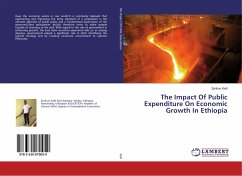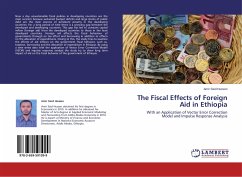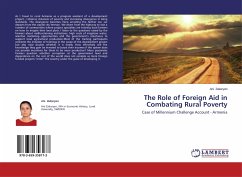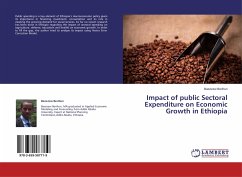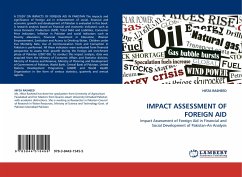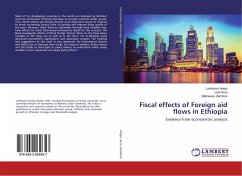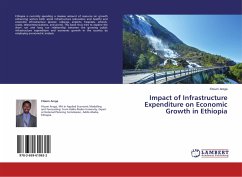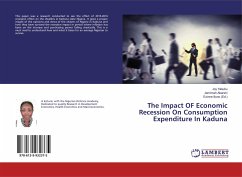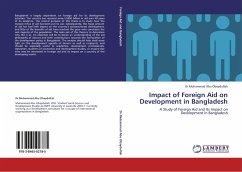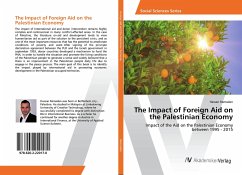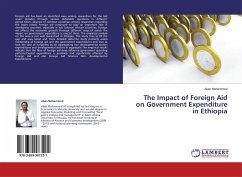
The Impact of Foreign Aid on Government Expenditure in Ethiopia
Versandkostenfrei!
Versandfertig in 6-10 Tagen
27,99 €
inkl. MwSt.

PAYBACK Punkte
14 °P sammeln!
Foreign aid has been an identified issue among researchers for the last seven decades through various debatable questions in different period.Given, absence of common consensus among researchers regarding the issues raised, foreign aid continued to play an important role in developing countries, especially in sub Saharan African countries. Foreign aid affects the economic growth through different ways of which the impact on government expenditure is one of them. The empirical analysis on this area is not well researched in Ethiopia. This study tries to fill the gap and uses latest and more det...
Foreign aid has been an identified issue among researchers for the last seven decades through various debatable questions in different period.Given, absence of common consensus among researchers regarding the issues raised, foreign aid continued to play an important role in developing countries, especially in sub Saharan African countries. Foreign aid affects the economic growth through different ways of which the impact on government expenditure is one of them. The empirical analysis on this area is not well researched in Ethiopia. This study tries to fill the gap and uses latest and more detailed data.The study primarily assess relationship of foreign aid and the government expenditures and tries to look the case of fungibility by dis aggregating non developmental sectors expenditures and developmental sectors in aggregate.The empirical results indicate that the flow of foreign aid does influence government spending patterns.Capital expenditure is positively and significantly affected by foreign Aid and also Foreign Aid finances Non- developmental Expenditures.



